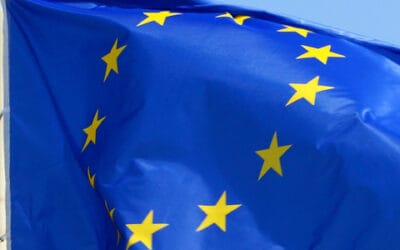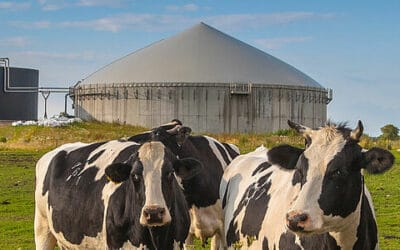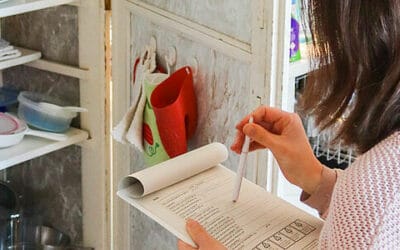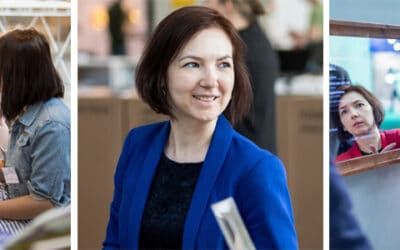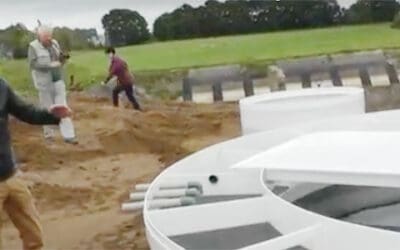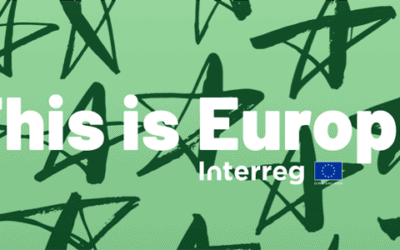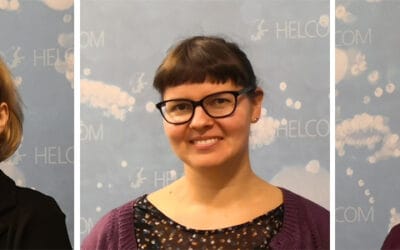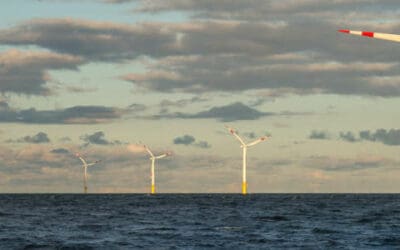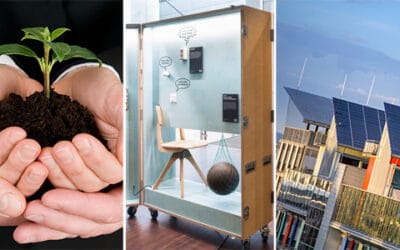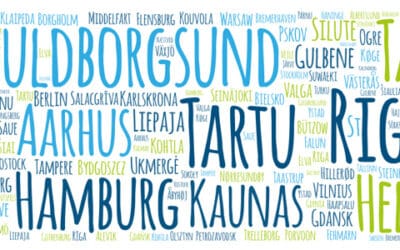Two Interreg Baltic Sea Region projects – EcoDesign Circle and NonHazCity – have reached the finals of two EU wide campaigns: RegioStars Awards 2020 and the Interact Project Slam. Both projects showcase how cooperation in an Interreg project actively contributes to a greener Europe.
Interreg Baltic Sea Region
News
Interview: “Interreg projects can push into the right direction”
To improve the water quality of the sea has been a continuous objective of Interreg Baltic Sea Region and its predecessor programmes. Many projects have received funding to reduce negative impacts of agriculture on the sea. The platform SuMaNu gathers and synthesises best practices and recommendations on nutrient management. We interviewed Henning Lyngsoe Foged from Aarhus, Denmark, who has been one of the driving forces to spread agri-environmental innovations across countries around the Baltic Sea.
“We want all citizens in Europe to become tox-free”
The NonHazCity projects are a great example of how Europeans with smart ideas successfully cooperate to turn good solutions into common practice. Environmentalists, public officials and researchers from eight countries demonstrate how we can reduce the amounts of hazardous substances that enter the environment from sources that cannot be controlled by traditional water treatment, e.g. offices, schools, recreational facilities and businesses. Read here about the household check – a unique tool to reach out to private households and to initiate better consumption decisions. The concerted approach of NonHazCity is innovative and far-reachig which is why the projects are flagships of the EU Strategy for the Baltic Sea Region.
Interreg empowers young generation to design a better future
Beata Fabisiak, project manager of the Interreg BaltSe@nioR and BaltSe@nioR 2.0 projects, explains how empowering young people brings multiple benefits: from driving economy to responding to major societal challenges. BaltSe@nioR and BaltSe@nioR 2.0 are great examples how young Europeans from different countries around the Baltic Sea can learn from each other to design a better future for Europe and its citizens.
Interview: Better clean the water in your village
People in the countryside release too many nutrients to the environment through their waste water because it is often not purified effectively. This problem was overlooked for many years. The Interreg project Village waters set out to make proper cleaning of waste water common practice across the rural areas around the Baltic Sea. In this interview, the project managers explain why they started the project and what they achieved.
Interreg in audio: First episode of podcast “This is Europe” takes you to a greener Europe
As Interreg becomes 30, Interact has launched the production of an audio podcast this year. In fourty minutes you can travel across Europe, learn about great Interreg projects, and get to know other professionals who use Interreg to fulfil their missions. One of the projects presented is cities.multimodal in which people work towards greener mobility in cities – co-funded from our Programme.
Interview: How the SuMaNu platform creates synergies between projects
SuMaNu is about sustainable manure and nutrient management and is directly connected with the ongoing development of a Nutrient Recycling Strategy for the Baltic Sea. Interreg Baltic Sea Region’s project platforms are designed to capitalise on the results of existing projects financed from different EU funding Programmes and to create synergies between them, e.g. by feeding into policy making. We interviewed three experts from the SuMaNu platform, which started in autumn 2018, to find out.
Interview: Exploiting offshore wind energy in the Baltic Sea region
The Baltic Sea region has great potential to generate offshore wind energy, but offshore grid development poses a major obstacle. The Interreg project Baltic InteGrid looked into meshed electricity grids, i.e. interconnecting offshore wind farms in order to achieve cost advantages and make more efficient use of maritime space. Thilo Krupp from the German Offshore Wind Energy Foundation explains results and experiences from the project.
What Russian partners do in Interreg projects: 5 examples from the Baltic Sea region
As many as 43 Interreg Baltic Sea Region projects are working together with Russian partners, showcasing that the same cause unites people beyond borders. From innovating businesses to saving energy and improving mobility – Russian partners are active in all thematic fields of the Programme. But what do they actually do?
What municipalities and cities get out of Interreg projects
Interreg is all about the regional development of municipalities and cities. Every tenth project partner in projects funded by Interreg Baltic Sea Region is a local public authority, i.e. an institution involved in governing a municipality or city. But why exactly do they participate in cooperation projects?



